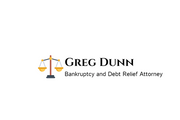4 Tips for Paying Off Debts While Unemployed

Millions of people have been laid off or furloughed from their jobs as a result of the COVID-19 pandemic. This has left many struggling to keep up with the bills. Unfortunately, even if you’ve experienced a sudden loss of income, your financial obligations won’t disappear. However, various resources and strategies are available to help you get through this challenging time and work toward debt relief. Here are a few tips on managing your finances while unemployed.
How to Deal With Debt After Losing Your Job
1. Revisit Your Budget
Take a close look at your monthly expenses and track your regular spending habits. You may discover several areas where you could cut back and save money. Pay particular attention to recurring payments that you can eliminate or scale down until your income becomes consistent again, such as cable TV, monthly subscriptions, and gym memberships.
2. Explore Assistance Programs

Many federal, state, and local public assistance programs exist to help those dealing with financial hardship. Do some online research to find out which options apply to your situation.
For example, community churches frequently host food drives, and the Supplemental Nutrition Assistance Program is designed to give a monthly allowance for groceries. Additionally, the Low Income Home Energy Assistance Program provides funds for utility costs, and the federal government operates an online benefits navigator that can help you find unemployment and health care resources.
3. Talk to Your Creditors
Often, lenders offer hardship programs that allow borrowers to lower or defer their monthly payment, temporarily reduce interest rates, or waive late fees. Contact your creditors before missing any payments and explain your current circumstances. If they’re willing to work with you, it can help give your budget some flexibility without your accounts being reported delinquent to the credit bureaus.
4. Consider Debt Settlement or Bankruptcy
If your bills continue to pile up with no end in sight, you may consider either enrolling in a debt settlement program or filing for bankruptcy. While these debt relief methods are often used as a last resort, they can provide the opportunity to gain a fresh financial start.
With debt settlement, a professional can negotiate your account balances down to a more manageable amount. Chapter 7 bankruptcy can completely discharge all unsecured debts, and Chapter 13 can restructure what you owe into a more affordable payment plan.
If you’re facing a difficult financial situation due to unemployment, don’t hesitate to explore your debt relief options with Greg Dunn, Bankruptcy and Debt Relief Attorney. He’ll present you with the best solution to meet your unique needs and goals. Serving the residents of Honolulu, HI, since 1988, this trusted legal professional helps individuals and families get their finances back on track. Call (808) 524-4529 to schedule a free consultation, or visit him online to learn more about his services.
About the Business
Have a question? Ask the experts!
Send your question

